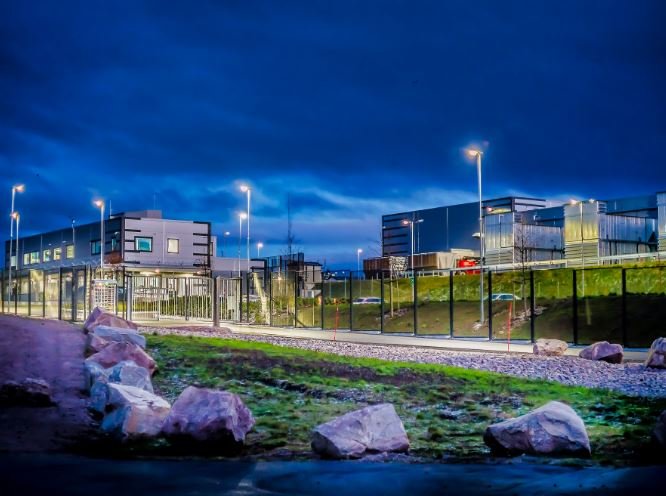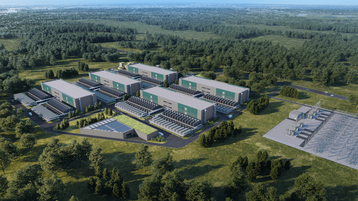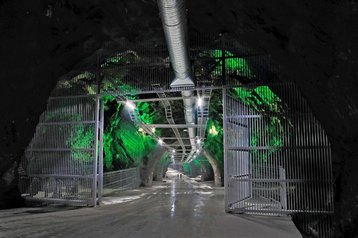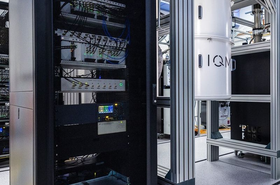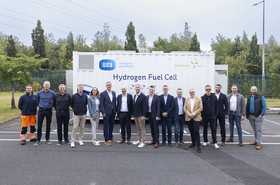Norway’s economy is powered by two engines: fossil fuels and fish. Figures from the government’s statistical agency show that oil and gas accounted for 96 billion Krone ($9.1bn) of the 160 billion Krone ($15.2bn) of Norwegian exports in April 2024. Fishing-related industries exported 13.3 billion Krone ($1.2bn) of salmon, halibut, and other fish, crustaceans, and mollusks over the same period.
Could digital infrastructure emerge as a third engine?
Given that Norway sits atop some of the world’s largest reserves of coal, crude oil, and natural gas, it might be a bit of a stretch to think that data centers could match the financial output of the country’s energy industry. But there’s no doubt that the profile of the Nordic nation’s data center sector is growing.
“Our CEO and I recently visited the US with businesses from fisheries and green industries, as well as the tech sector,” says Rob Elder, chief commercial officer at Oslo-based Bulk Infrastructure, referring to a trade mission in April headed up by Crown Prince Haakon, the heir to the Norwegian throne.
But with greater profile comes greater scrutiny, and the Norwegian government has announced it intends to become the first European country to introduce a dedicated legal framework for data center operators, which could compel them to detail the type of workloads being run on their server.
This is being billed as a way to ensure Norway does not become a haven for cryptocurrency mining, but will have to be introduced carefully so as not to become an additional administrative burden for operators that could deter investment just as the sector begins to get revved up.
Registering an interest
Norway’s data center market is not one of the world’s largest. According to Data Center Map, the country is home to 45 data centers, more than half (23) of which are located in and around Oslo, the nation’s capital.
Norway set out its intention to become a “Data Center Nation” back in 2018, with a new national strategy designed to attract the bigger players in the market. But while the government has offered tax breaks on electricity usage for data center operators in a bid to entice overseas businesses, the US cloud hyperscalers have yet to build in Norway.
Despite none of the hyperscalers having their own facility among the fjords, Google is spending €600 million ($646.4m) building a campus on 200 hectares of land in the Gromstul area of Skien, around 85 miles southwest of Oslo, which it acquired in 2019. This facility could offer up to 240MW of IT capacity, with the first phase due to go live in 2026. Microsoft has also operated two Norwegian cloud regions, though not from its own data centers, and one of these has since been delisted. AWS has an Edge location in Oslo.
Norwegian companies and smaller overseas operators have filled the hyperscaler-shaped void. For example, Norway’s Green Mountain is building out digital infrastructure which will be used by social media giant TikTok, having handed over the first data center to the company in December.
Norway’s cool climate means that, in many ways, it is an ideal location for data centers, and the abundance of available clean energy is also a boon for operators; Norway’s grid runs entirely on renewable sources, with 88 percent generated by hydropower, alongside some wind energy.
Demand for this power is growing all the time, and so Norway’s government has decided to take action in the form of legislation that it hopes will ensure that the data centers using large chunks of grid capacity are benefiting Norwegian society and the economy. “The purpose is to regulate the industry in such a way that we can close the door on the projects we do not want,” Karianne Tung, Norway’s digitization minister, said in an interview with the VG newspaper in April.
“We need to know more about which data centers we have, what they contain, and what they do. Today we have no overview.”
Under the proposed rules, a register will be created detailing the owners and managers of data centers, as well as the type of digital services they offer. It is hoped this will empower local authorities to make more informed decisions about whether to give new projects the go-ahead.
The government hopes this will help stop the construction of crypto data centers, which use large amounts of power to generate cryptocurrencies such as Bitcoin. According to Terje Aasland, Norway’s energy minister, crypto mining “is associated with large greenhouse gas emissions, and is an example of a type of business we do not want in Norway.”
New rules a step forward?
In emailed comments to DCD, Gunn Karin Gjul, state secretary in the Ministry of Digitalisation and Public Governance, said that the department had carried out “several consultations and dialogues with the data center industry” over the new rules. Gjul said: “Our impression is that they acknowledge the growing importance of the data center industry and therefore see the necessity of a regulation.”
One of the bodies consulted was Norwegian Datacenter Industry, a trade association representing 60 members across data center operators and associated businesses. Bjørn Rønning is the association’s CEO, and says the Covid-19 pandemic brought home the importance of digital infrastructure to policymakers in Norway.
Rønning says members of his association are “pretty relaxed” about the upcoming regulation. “This is a recognition of the importance of the data centers,” he says. “The rest of the industry, in terms of fiber infrastructure, mobile infrastructure, and all the service providers, have been regulated for 20 years, but at the moment with data centers there’s no regulation - if you have permission to put a building up and the necessary power you can set one up - it’s very problematic.”
Bulk, which is a member of Norwegian Datacenter Industry, operates two data center campuses in Norway, the 12MW N01 Data Center Campus in Kristiansand, in the south of the country, and its Oslo Internet Exchange site in the capital. The company broke ground on a 42MW extension of N01 earlier this year.
COO Elder echoes Rønning’s view that more regulation is a good thing. “We’re hugely supportive,” he says. “Anything that brings more public confidence to our industry is a good thing, and as the data center sector increases in scale and importance it's inevitable but also important that it has the right governance and the right legislation to enable it to operate in the right way.”
Closing the door on crypto
The new legislation is expected to be considered by lawmakers in Norway later this year, with a date in November penciled in.
Gjul said the government believes “sensible obligations are accepted by the serious data center operators, and even seen as necessary,” but the rules are unlikely to be so warmly received by crypto data center operators, which are currently free to do as they please.
While no accurate picture exists of the number of crypto data centers in Norway, those in the industry say such facilities are relatively common.
“We know there are quite a few out there, and the value of Bitcoin has increased recently, which helps them,” says Jørn Skaane, CEO of Lefdal Mine Datacenter. “The problem is there’s no real benefit to it - you just have a container sitting out in a field somewhere with no investment in the community. It just converts kilowatts to Bitcoin.”
Despite literally being based in a mine - Lefdal’s data center is located in an abandoned gemstone and mineral mining facility - the company, in keeping with many of its peers, does not allow any crypto harvesting activity on its servers, though it has previously hosted mining rigs operated by Northern Bitcoin, now known as Northern Data.
Skaane says the company now stipulates “no cryptomining in our contracts, which keeps things simple.” But, he says, “But in general the situation for the government is more complex because there are also other market segments with players that can be considered unnecessary or does not make the world a better place.
"It’s difficult to just say no [to cryptomining] because you don’t like it.”
Indeed, the convergence of crypto data centers and AI could make the implementation of any new laws in Norway more difficult, with many former crypto companies now using their hardware to power generative AI systems instead. This will potentially make it challenging to discern what types of workloads are running in a specific facility.
On the whole, Skaane is in favor of regulation. “I think it’s good the government is taking an interest, as long they don’t make any hasty decisions without considering the consequences,” he says.
“We want stable conditions regarding taxation and legal frameworks, and for Norway, this is a fantastic opportunity to build out a new export industry, where we convert kilowatts into data and send them through the fiber network to Germany or the UK. That makes so much more sense than sending power over long distances to fuel data centers in Frankfurt or London.”
To ensure this new export industry takes off, Norwegian Datacenter Industry’s Rønning says it is important to minimize the burden the legislation places on operators, so as not to deter investment. Many of Norway’s biggest data center operators have all been reliant on foreign backers, with the London-based Columbia Threadneedle European Sustainable Infrastructure Fund holding a majority stake in Ledfal Mine, and Israel’s Azrieli Group backing Green Mountain.
Rønning says data center companies can expect regular audits if the proposals become law, but that his association is working with the government to ensure this process is “as smooth as possible.”
He adds: “For investors, the instinctive response is always that all regulation is bad, so we have spent some time trying to calm them down. This will put some extra administrative burden on the data center, and you’re probably going to have to find some reports you don’t often produce today. But otherwise, I have no worries, this is not a sign that this industry is not welcome in Norway.”

